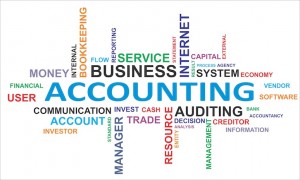
Over the past four to five years cloud accounting has been universally adopted by all the major and minor accounting firms. There are so many practical reasons for keeping business in the cloud as I have discussed in previous articles. In the beginning, when accounting software began its transition into the cloud, most thought it would be a limo ride to ease and affordability. However, some of the simple basics turned out to be hurdles that needed to be overcome. Cloud implementation presented several fundamental challenges that weren’t being met, such as journal entries and reconciliations. These basics have long since been cleared up, and are no longer a consideration. But it just goes to show you that even the simple things can take more attention that initially realized.
 How can an industry with such strong parameters grow creatively? At first it may look as though there isn’t any room to stretch the growth opportunities. Catering to the public, but staying within strict designated guidelines is sometimes like a high wire act. Legality is of the utmost importance, and customer care ranks right up there with it.
How can an industry with such strong parameters grow creatively? At first it may look as though there isn’t any room to stretch the growth opportunities. Catering to the public, but staying within strict designated guidelines is sometimes like a high wire act. Legality is of the utmost importance, and customer care ranks right up there with it. Within the accounting industry it’s critical that practitioners stay current on developing trends. It’s not always easy, but consider it a part of the job. It’s a necessity to be sure you are making use of every advantage and opportunity that software technology offers.
Within the accounting industry it’s critical that practitioners stay current on developing trends. It’s not always easy, but consider it a part of the job. It’s a necessity to be sure you are making use of every advantage and opportunity that software technology offers.